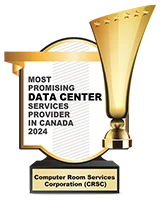Colocation vs. Data Center Construction

As a startup, your data storage, cooling and power needs may be growing faster than you anticipated. Before you rush to build or lease a data center, think through the pros and cons of each step. Building a data center comes with huge financial implications that your organization should be well prepared for. On the other hand, leasing or what is commonly referred to as colocation, could be cost-effective but fail to meet your company’s IT needs. What happens if your company needs additional capacity, infrastructure and operations? Let’s go over the pros and cons of colocation vs. data center construction.
The advantages of colocation (leasing a data center)
If you are not financially capable of building your own data center, one viable option could be to outsource. Most of the costs involved with leasing a data center is operational and not up front, unlike constructing a new center.
- Leasing a data center provides organizations with a more predictable expenditure model. Organizations can keep track of expenses and it’s unlikely to spend much more than what the service providers had quoted over the life of the data center.
- Leasing also offers great flexibility since scaling can be easily done as needed. Service providers already have resources in place to cater for their clients’ growing needs.
- As an organization, you can access the space and power that you need based on your IT and financial capacity.
- Leasing also provides smaller organizations with experienced and certified professionals who can run the center efficiently and increase availability/lower downtime.
Advantages of building a data center
While building a data center attracts high upfront costs, it certainly comes with some advantages. These include:
- The company gets complete access to the premise.
- Low risk of losing the lease
- The company can leverage on the existing space by adding cabinets and hardware as needed.
The upfront costs of building a data center
Companies that build data centers Toronto have invested a fair amount of capital and upfront costs. These costs can quickly add up if proper plans are not put in place. The costs include:
- Planning, design and commission of data center. This has to be done by experts and can take up to 25% of the total upfront construction budget.
- The cost of building the data center shell and property together with physical security.
- Fire protection systems. The company needs to set aside money for new fire suppression and detection systems. This may include smoke detecting systems and other equipment.
- The cost of permits and local taxes. This may vary from one region to another.
- Purchasing and installing IT infrastructure needed in the data center. This includes electrical equipment installation.
- Purchasing and installing fiber on the site since centers need network connection.
- The cost of installing a reliable power supply and cooling equipment.
- Data center staffing expenses. IT personnel may be required to offer on-site maintenance and responsive operations.
- Annual maintenance costs including repairs and additions that may be required from time to time.



